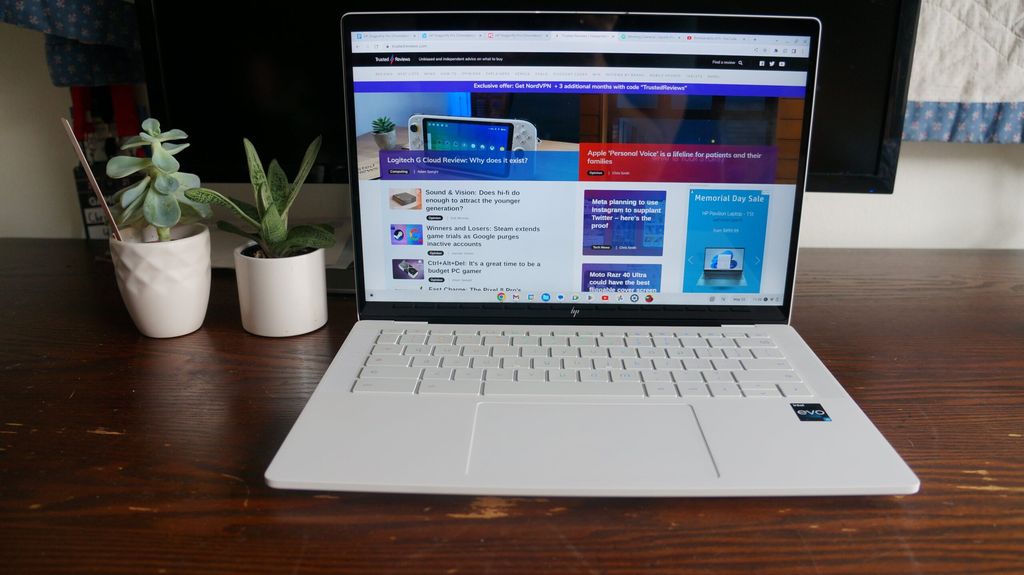Chromebooks have become increasingly popular due to their affordability, simplicity, and fast boot time. They offer a secure operating system and are lightweight and easy to carry. However, there are also some drawbacks to using a Chromebook, such as limited offline functionality, compatibility issues, and dependency on an internet connection. In this article, we will explore the pros and cons of using a Chromebook and compare it to a traditional laptop.
Key Takeaways
- Chromebooks are affordable and offer a fast boot time
- They have a simple and secure operating system
- Limited offline functionality is a drawback
- Compatibility issues may arise with certain software
- A Chromebook is dependent on an internet connection
What is a Chromebook?

Operating System
The operating system of a Chromebook is Chrome OS, which is a lightweight and web-centric operating system developed by Google. Unlike traditional laptops that run a complete desktop operating system, Chrome OS is designed to be simple and efficient, with a focus on cloud-based applications and services. This means that most of the tasks and applications on a Chromebook are performed online, making it ideal for users who primarily use web-based tools and services.
Chrome OS offers seamless integration with Google’s suite of productivity apps, such as Google Docs, Sheets, and Slides, as well as access to the Chrome Web Store for additional web-based applications and extensions. It also provides automatic updates and built-in security features, such as sandboxing and verified boot, which help protect against malware and ensure a safe browsing experience.
In terms of compatibility, Chrome OS may have limitations when it comes to running certain software or applications that are designed for other operating systems, such as Windows or macOS. However, many popular web-based applications have web versions or alternatives that can be used on a Chromebook. Additionally, Chrome OS supports Android apps, expanding the range of available applications.
Overall, the Chrome OS on a Chromebook offers a streamlined and user-friendly experience, with a focus on web-based productivity and security.
Hardware
When it comes to hardware, Chromebooks are designed to be lightweight and portable. They typically have smaller screens and compact keyboards, making them easy to carry around. The hardware components of a Chromebook are optimized for web-based tasks, such as browsing the internet, using web apps, and streaming media. While they may not have the same processing power or storage capacity as traditional laptops, Chromebooks excel in their simplicity and efficiency for everyday tasks.
Software
The software on a Chromebook is one of its key features. Chromebooks run on Chrome OS, which is a lightweight operating system developed by Google. This operating system is designed to be simple and intuitive, making it easy for users to navigate and use. It is also highly secure, with built-in virus protection and automatic updates. Chrome OS is optimized for web-based applications and services, allowing users to access their favorite apps and tools directly from the browser. This means that users can work, play, and communicate online without the need for additional software installations. With the increasing popularity of cloud-based services, Chromebooks provide a seamless and efficient experience for users who rely on web-based applications and services.
Pros of using a Chromebook

Affordability
One of the major advantages of using a Chromebook is its affordability. Chromebooks are incredibly budget-friendly, with decent models available for just under $200. This makes them highly attractive to college students who are often on tight budgets. Despite their low price tag, Chromebooks offer a lot of power and performance. They are fast and efficient when it comes to processing and multitasking, and they have an all-day battery life. In comparison, even the best cheap Windows and Mac options cannot match the combination of affordability and performance that Chromebooks provide.
Simplicity
One of the key advantages of using a Chromebook is its simplicity. Chromebooks are designed to be user-friendly and straightforward, making them an excellent choice for those who prefer a hassle-free computing experience.
With a Chromebook, you don’t have to worry about complex operating systems or intricate hardware configurations. The Chrome OS is intuitive and easy to navigate, providing a seamless user interface. Whether you’re a beginner or a tech-savvy user, you’ll find that using a Chromebook is a breeze.
Additionally, Chromebooks offer a streamlined software experience. Most of the applications and tools you need are web-based, eliminating the need for extensive software installations and updates. This not only saves you time but also ensures that your device runs smoothly without any unnecessary bloatware.
In terms of productivity, Chromebooks excel in simplicity as well. The integration with Google’s suite of productivity tools, such as Google Docs, Sheets, and Slides, allows for seamless collaboration and easy file sharing. Whether you’re working on a group project or need to access your files from different devices, Chromebooks make it effortless.
Overall, the simplicity of Chromebooks makes them an attractive option for users who value ease of use and a streamlined computing experience.
Fast Boot Time
One of the major advantages of using a Chromebook is its fast boot time. Unlike traditional laptops, which can take several minutes to start up, Chromebooks boot up in a matter of seconds. This is because Chromebooks are designed to prioritize speed and efficiency, allowing users to quickly access their files and applications. With a fast boot time, users can save valuable time and start working or browsing the web almost instantly.
Security
When it comes to security, Chromebooks offer a unique advantage. Since Chrome OS is cloud-based, all your documents and work are saved to your Google Drive, rather than being stored on the device itself. This means that even if your Chromebook gets lost or damaged, your data is safe and accessible from any other device with an internet connection. Additionally, Chromebooks are designed with built-in security features that help protect against malware and viruses. Automatic updates ensure that you always have the latest security patches, keeping your device secure and your data protected.
Cons of using a Chromebook

Limited Offline Functionality
One of the main drawbacks of using a Chromebook is its limited offline functionality. While most software can be freely used offline, unless it’s inherently web-based, the software availability is restricted compared to traditional laptops. This means that Chromebooks may not be a suitable alternative for everyone, especially those who require specific software for video editing or graphic designing. Additionally, printing can be an issue with Chromebooks, and they generally have less local storage compared to laptops. However, Chromebooks are lightweight and compact, making them convenient for both business and entertainment purposes.
Compatibility Issues
One of the main drawbacks of using a Chromebook is its compatibility issues. While Chromebooks are designed to be lightweight and efficient, they have limitations when it comes to running certain software and applications. Chromebooks primarily rely on web-based applications, which means that software that requires offline functionality or is not available on the web may not be compatible with a Chromebook. Additionally, Chromebooks have limited support for certain file types, such as those commonly used in video editing and graphic designing. Therefore, if you heavily rely on specific software or need advanced functionality, a Chromebook may not be the best choice for you.
Limited Gaming Options
If you’re a gamer of any sort, casual or hardcore, a Chromebook really isn’t ideal. Their storage is so tiny, you’ll never be able to fit any games on your hard drive. Their graphics cards will struggle to run 8-bit games if you’re lucky. They’re just not for the gamer and if that’s how you spend your free time, it may be best for you to look elsewhere for your college laptop. You’re going to want a laptop that will last you your entire college career and a Chromebook can definitely do that for you. Keep in mind your major and what sort of tech you’ll need for it. A Chromebook is going to be a great fit for a majority of majors but if you need a specialist software, remember the options the ones listed above. There are workarounds to this, like installing Linux, using a virtual desktop or simply using your university computers and work labs.
Dependency on Internet Connection
One of the main drawbacks of using a Chromebook is its dependency on an internet connection. Chromebooks are designed to primarily work online, and many of their features and applications require an internet connection to function properly. While there are some offline capabilities, such as the ability to use certain apps and access files stored locally, the overall functionality of a Chromebook is limited without an internet connection.
This reliance on the internet can be a disadvantage in situations where a stable and reliable internet connection is not available. It can hinder productivity and limit the usability of the device, especially when performing tasks that require constant internet access, such as streaming media or collaborating on cloud-based documents.
Additionally, the need for an internet connection also raises concerns about privacy and security. Since most of the data and applications are stored in the cloud, there is a potential risk of unauthorized access or data breaches. It is important for Chromebook users to take necessary precautions, such as using strong passwords and enabling two-factor authentication, to protect their personal information and ensure a secure online experience.
Chromebook vs. Traditional Laptop

Price
One of the major advantages of using a Chromebook is its affordability. Chromebooks are known for their budget-friendly price tags, making them a popular choice among students and budget-conscious individuals. With decent models averaging around $250 and higher-end models reaching up to $700, Chromebooks offer great value for the power they provide. This makes them an attractive option for those who want a reliable and functional laptop without breaking the bank.
Performance
When it comes to performance, Chromebooks excel in their speed and efficiency. The lightweight Chrome OS allows for quick boot times and smooth multitasking. With their low-power processors, Chromebooks are designed to prioritize battery life without sacrificing performance. While they may not have the processing power of traditional laptops, they are more than capable of handling everyday tasks such as web browsing, document editing, and media streaming.
Operating System
The operating system of a Chromebook is Chrome OS, which is a lightweight and web-centric operating system developed by Google. Unlike traditional laptops that run full desktop operating systems like Windows or macOS, Chrome OS is designed to primarily work online and relies heavily on cloud-based applications and services. This makes Chromebooks fast and efficient, as they don’t have the same resource requirements as traditional laptops. Additionally, Chrome OS provides automatic updates, ensuring that users always have the latest security patches and features.
Software Compatibility
When it comes to software compatibility, Chromebooks have a wider availability compared to traditional laptops. Most software can be freely used offline unless it’s inherently web-based. This means that you can still work on your documents, edit photos, or play games even without an internet connection. Additionally, Chromebooks are lightweight and compact, making them great for both business and entertainment purposes. However, it’s important to note that Chromebooks may not be suitable for video editing and graphic designing due to their limited offline functionality and restricted software availability. Overall, if you’re looking for a device that offers a wide range of software options and the convenience of offline usage, a Chromebook is a solid choice.
Conclusion
In conclusion, Chromebooks offer several advantages for college students. They have an entry-level price range, strong and long-lasting battery life, low maintenance cost, and are more secure than laptops. Chromebooks are lightweight and easy to carry, making them convenient for students on the go. They also provide simple and quick implementation of Google apps. However, there are some limitations to consider. Chromebooks have minimal offline functionality, restricted software availability, and are not suitable for video editing and graphic designing. Overall, Chromebooks are a budget-friendly option for college students who primarily need a device for web browsing, document editing, and online tasks.
Frequently Asked Questions
What is a Chromebook?
A Chromebook is a type of laptop that runs on the Chrome operating system developed by Google.
What are the advantages of using a Chromebook?
Some advantages of using a Chromebook include affordability, simplicity, fast boot time, and security.
What are the disadvantages of using a Chromebook?
Some disadvantages of using a Chromebook include limited offline functionality, compatibility issues, limited gaming options, and dependency on an internet connection.
How does a Chromebook compare to a traditional laptop?
Chromebooks are generally more affordable than traditional laptops, but they may have lower performance and limited software compatibility.
Can a Chromebook be used for college?
Yes, a Chromebook can be used for college. However, there are certain limitations to consider, such as limited software capabilities and offline functionality.
What is the battery life like on a Chromebook?
Chromebooks typically have long battery life, with some models offering up to 12-13 hours of usage.




